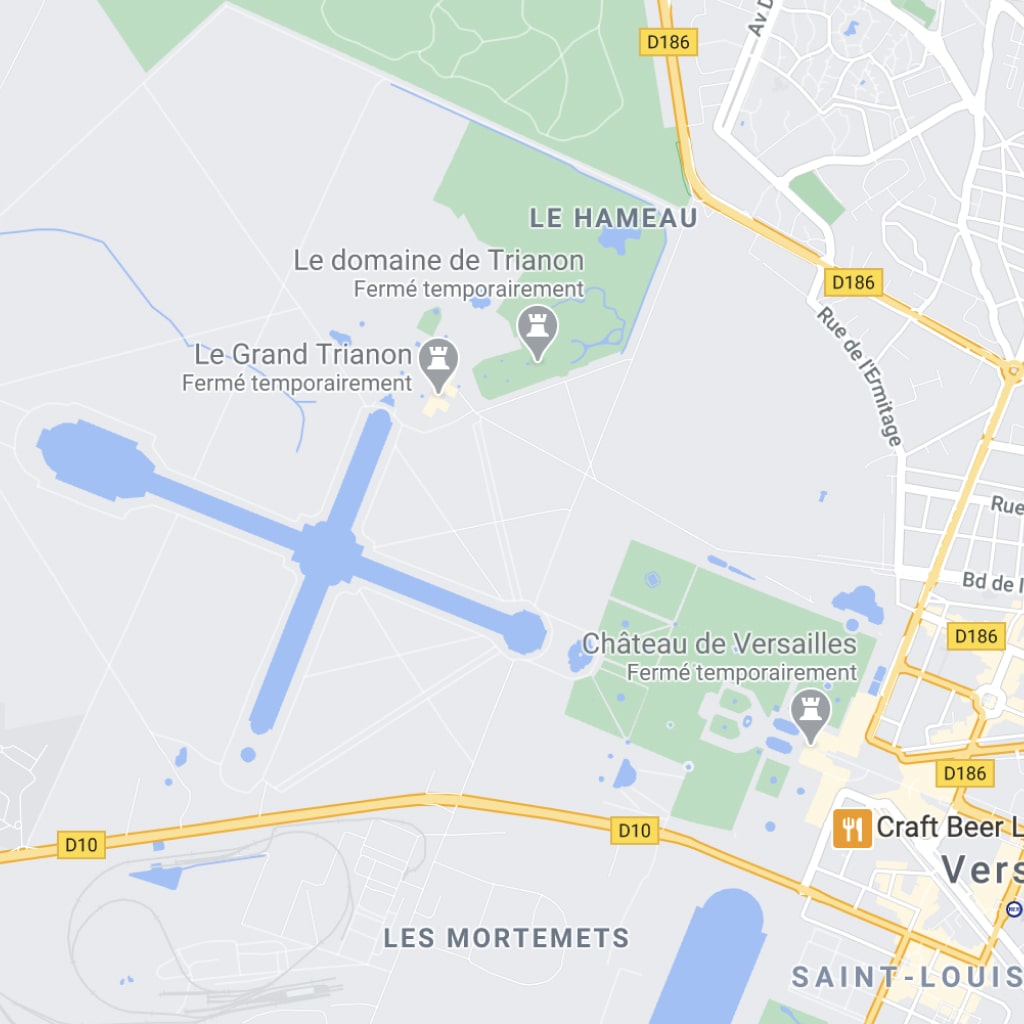At the end of the War of 1870, France lay defeated and invaded by its enemies. Chancellor Bismarck proclaimed the German Empire in the Hall of Mirrors. Following the humiliations meted out by Louis XIV and Napoleon I, Germany finally had its revenge.

Proclamation of the German Empire, 1871 18 January 1871
France declared war against Prussia on 19 July 1870. On 2 September the French forces in Sedan surrendered, and Prussia invaded France. On 19 September the siege of Paris began, and the first troops arrived at Versailles. On 5 October Wilhelm I and Bismarck entered the city and prepared the proclamation of the German Empire in the Palace.
After its campaigns against Austria and Denmark in the mid-1860s Prussia had increased its territory and grown stronger, and it now stretched from the Rhine to Russia. Chancellor Bismarck intended to federate the other German states around Prussia to build an empire at the expense of its rival, the Austro-Hungarian Empire. Bismarck's aim was to become the new major power in the centre of Europe, between France and Russia. He constituted the North German Confederation, which united all the states except those in the south, and which was joined in 1870 by Hesse, Baden, Bavaria and Württemberg. King Louis II of Bavaria refused to join the other German princes at Versailles, perhaps out of respect for the location and the legacy of Louis XIV. Whatever the reason, his brother Othon negotiated in his place. The proclamation of German unity had begun.
On 16 December 1870 a delegation from the parliament of North Germany arrived at Versailles to beg the Prussian king to accept the title of Emperor of Germany. The Confederation was dissolved on the 20th, and the proclamation of the Empire was set to be delivered on 18 January 1871 in the Hall of Mirrors. An altar was installed in the centre for a religious ceremony, and a platform was built near the War Room, opposite to where Louis XIV’s throne had once stood. Six hundred officers and all the German princes were present, except for Louis II. After the Te Deum the proclamation was read out by Bismarck, dressed in a cuirassier uniform. At the end the Grand Duke of Bade cried: “Long live His Majesty Emperor Wilhelm!”
Anecdote
Following the surrender by the French army in Sedan, which marked the fall of the Second Empire, the Germans arrived in Versailles and occupied the town. The King of Prussia took up residence in the Prefecture. The Palace was closed to the public, and the Hall of Mirrors was turned into a military hospital.
Shouts of “Hurrah!” rang through the hall. The chancellor had achieved his dream, beneath the paintings by Le Brun extolling the victories of Louis XIV over the Rhine, and had got his revenge for the Battle of Jena in 1806. The Germans then made way for the deputies of defeated France.








